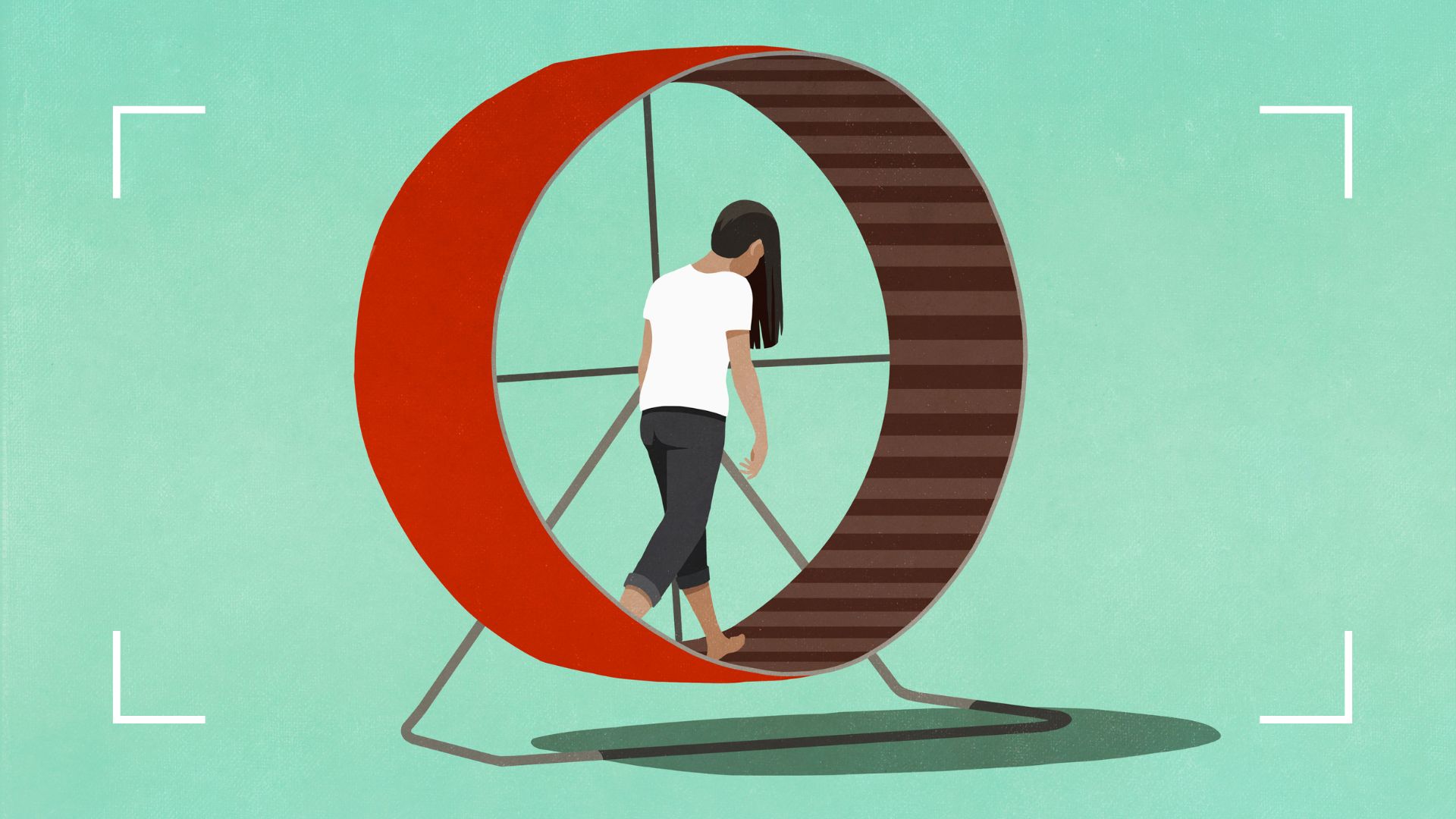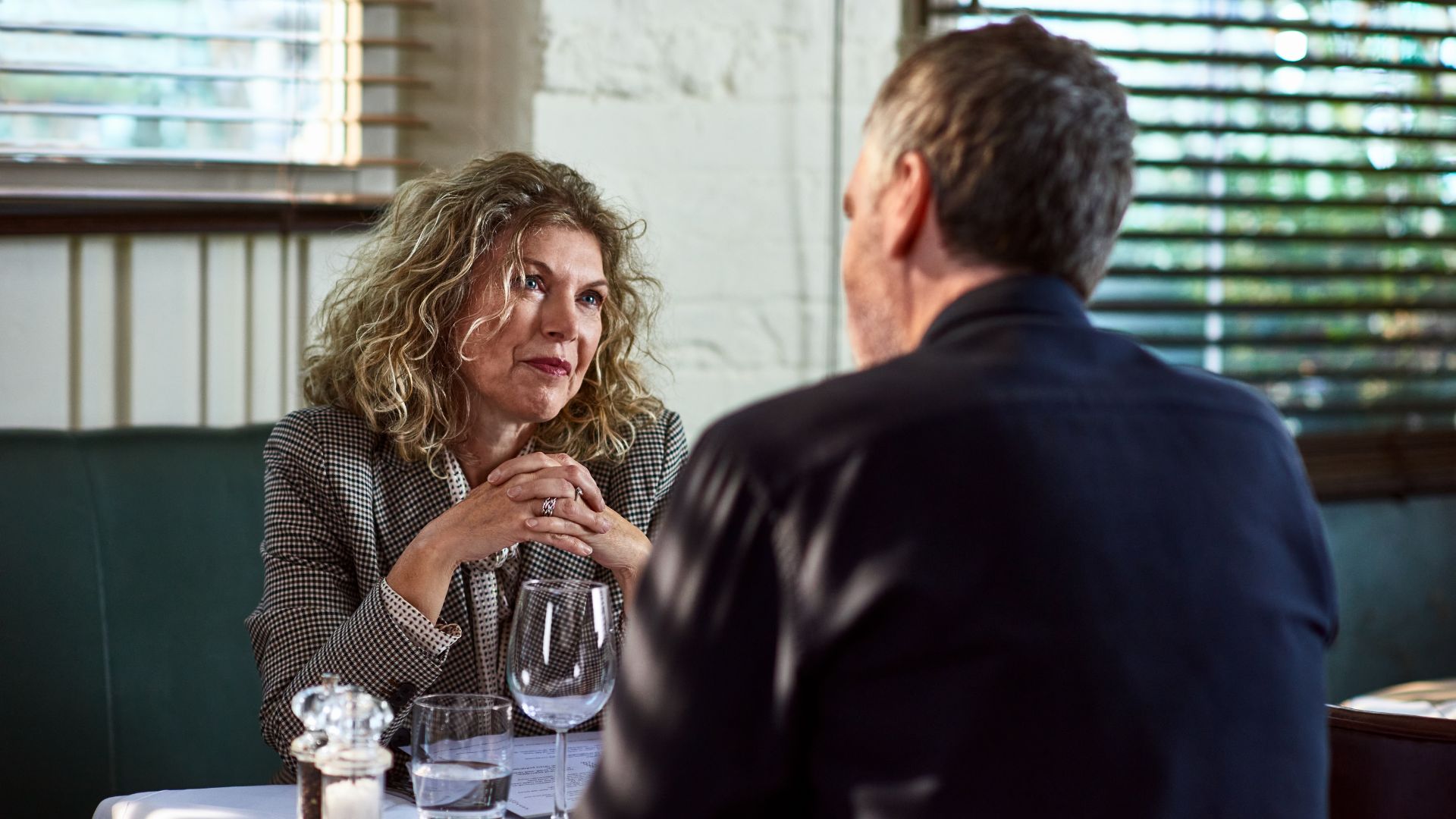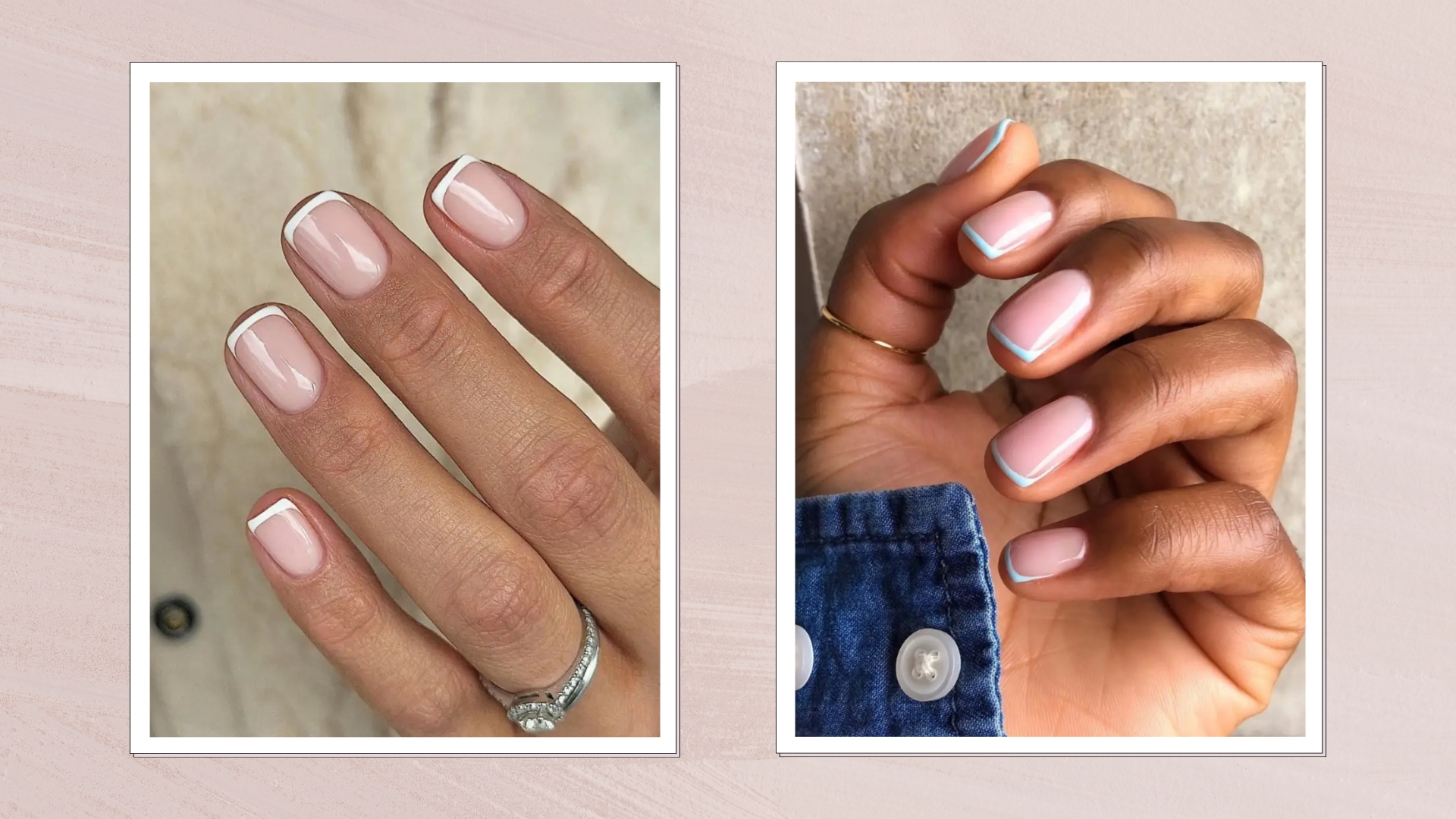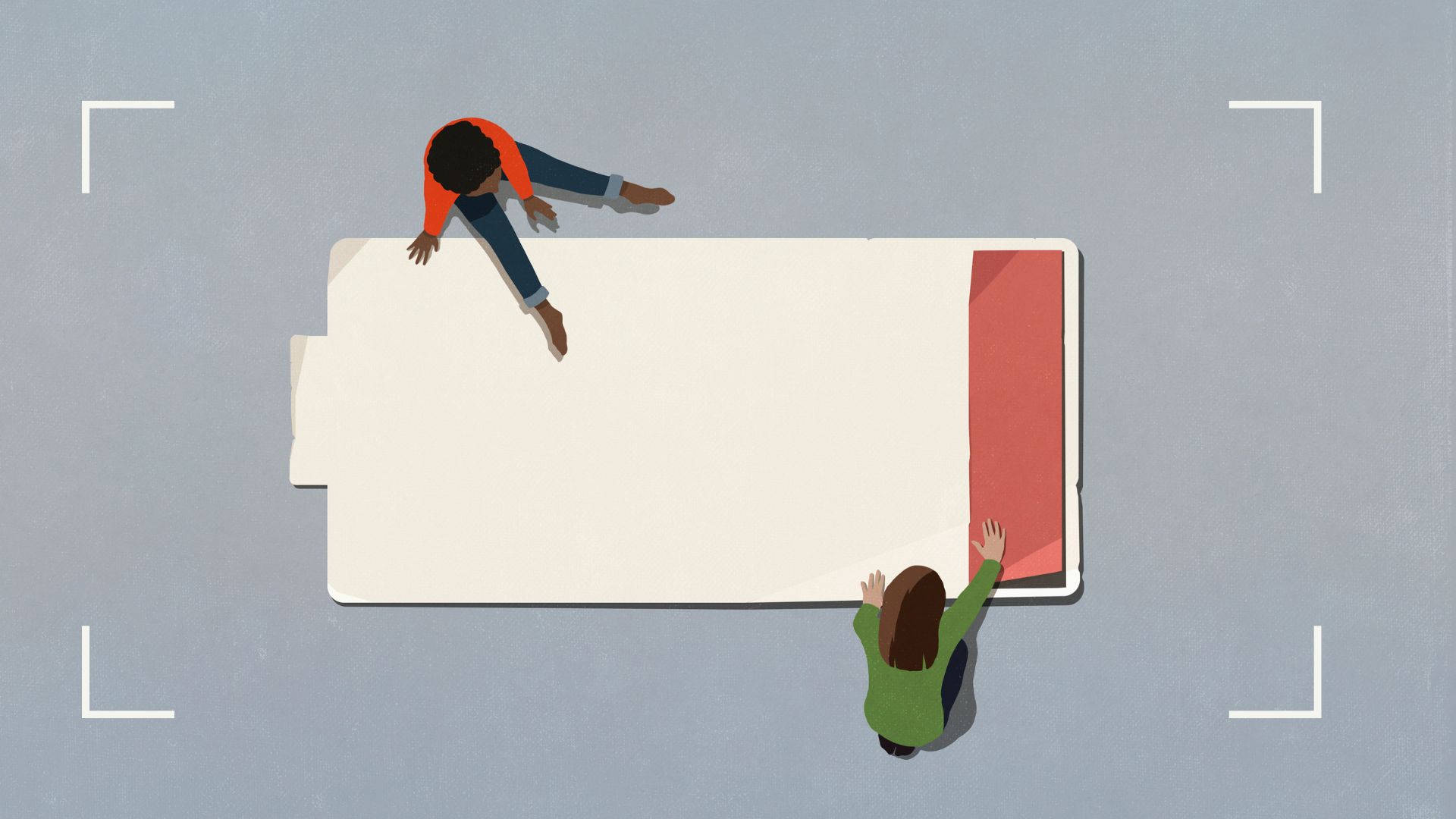8 signs of a toxic relationship to look out for
Experts reveal the signs of a toxic relationship to look out for and how to get help

A healthy relationship is one based on equality and mutual respect but we have probably all been witness to signs of a toxic relationship where this isn't the case. In most instances, the two people in the relationship will know they’re not a good match and things will end. However, in some cases, the situation may be more serious.
Through no fault of their own, some people may be more susceptible to a toxic relationship. This could be if they are much younger than their partner, have low self-esteem, or have little family support. But really, anyone can become involved in a toxic relationship.
The best case scenario with a toxic relationship is that both parties involved make the mutual decision to part ways before the situation really deteriorates, and both parties seek the help and support they need. Toxicity is just one of the signs your relationship is over, according to psychologists, so we asked them to reveal the real impact of toxic relationships and how to spot whether you're in one.
What is a toxic relationship?
Every relationship has its ups and downs and it’s normal to have differences of opinion or to exchange cross words with your partner from time to time. A toxic relationship is different: if your wellbeing is being negatively affected, whether emotionally, physically, or financially, then this is a sign your relationship has become toxic.
Dr Lilian Glass is an American psychology expert who says she first used the term ‘toxic relationship’ in her book Toxic People. She defines it as “any relationship [between people who] don’t support each other, where there’s conflict and one seeks to undermine the other, where there’s competition, where there’s disrespect and a lack of cohesiveness”. And this doesn’t just apply to relationships with your partner or spouse - a toxic friendship, family relationship, or business partner can be just as damaging.
If you’re finding that there are more unhappy moments in your relationship than positive ones, or you feel like you are being controlled, belittled, or gaslit, this indicates that things are not as they should be. If you’re experiencing verbal, physical, or emotional abuse then it’s time to seek help. Some people may not realize their relationship's toxicity until they are out of it.

Signs you're in a toxic relationship
1. You're feeling unhappy
Life has its challenges and we can’t be happy all of the time, but if you’re feeling low a lot this could be one of the signs of a toxic relationship. A partner is meant to make you feel happy, safe, and loved. If this is not the case and their behavior or actions are upsetting you or causing stress, it’s time to make a change.
Sign up for the woman&home newsletter
Sign up to our free daily email for the latest royal and entertainment news, interesting opinion, expert advice on styling and beauty trends, and no-nonsense guides to the health and wellness questions you want answered.
Certified counselor Emma Roberts says many people in this situation hide their feelings or are afraid of speaking up about them, which can lead to a feeling of isolation. In turn, this can lead to depression or low self-esteem.
2. Your boundaries are being ignored
We all have personal boundaries to protect ourselves from people or situations we don’t feel comfortable with. In a toxic relationship, you might find that these boundaries are not being respected. Personal and professional coach Hatty Hilton says, “Boundaries are an important part of ensuring our physical and emotional needs are respected. When our boundaries are ignored or abused by others, it can feel invasive and invalidating. Everyone has the right to have their boundaries acknowledged, so if someone close to you is disregarding yours, it might be a sign that the relationship needs work.”
People who display toxic behavior may be manipulative and charismatic, which means they may try to convince you you’re not being mistreated. Some boundaries will be more important to you than others but it will be down to you to decide if you’re willing to compromise or not. If your limits are being ignored repeatedly and you've highlighted the issue with your partner, it’s time to end things.
3. Your self-confidence has dropped
Many people in toxic relationships lose their confidence and have to learn how to be more confident again after the end of the partnership. Often this can mean they stay in the relationship for longer than they should. As Hilton says, “Being criticized, manipulated, on the receiving end of behaviour like 'breadcrumbing', or blamed on repeat can chip away at our confidence, creating feelings of insecurity and self-doubt. We might start having more limiting self-beliefs than empowering ones, or struggle to remember our own positive attributes and achievements, getting stuck instead in negative thought cycles and feeling consumed by all that we have 'done wrong'.”
One woman, who wants to remain anonymous but was in an abusive relationship with her ex-fiance for 10 years, tells woman&home: “It sounds strange but the verbal abuse did more long-term damage. I was repeatedly told that I was stupid, that it really wasn’t hard to be smarter than me, that I was fat, that I didn’t earn enough money, that I was lazy and a coward. My confidence was at an all-time low. He would also talk down to me in front of friends and family and think nothing of it. It was as though when it came to me, he was emotionless.”
4. You're ignoring your own needs and health
It’s easy to neglect your own needs when you’re worried about keeping your partner happy, especially if you're experiencing relationship anxiety. This might mean you stop going out with friends or enjoying your hobbies, and this is one of the signs of a toxic relationship. "A healthy, balanced life is made up of just that, health and balance. Ordinarily, we should be able to nurture multiple segments in our lives at any one time, tending to friends, family, and work in tandem with health, finances, and hobbies," says Hilton. "But being in a toxic relationship can leave us feeling anxious, low, or drained, sapping the time and energy we have for these other segments and leading to us deprioritizing what is important and nourishing.”
Mother of two Mandeep Kaur, who’s 47 and from Halifax, was in a toxic relationship with her ex-husband for more than five years. She says, “I became more and more withdrawn and isolated from others. I did less and less of things that I used to enjoy. I usually put on a brave face in front of others. I only spoke to a couple of close friends about him and also with my mum. I didn’t fully understand how toxic and abusive he was until we separated and I had 1:1 coaching with trauma-informed therapy.”
Ashley, 31, was in a toxic relationship with a boyfriend for four years and says how her partner treated her affected her physical and mental health. “My self-care was completely neglected and I lost weight through anxiety. The relationships with my friends and family were becoming very strained. I always had a false hope he would change so we would end and get back together, he would change but this would only ever last a few weeks.”
5. Your partner is jealous of you
Jealousy is very common in relationships and a healthy dose of it can help remind couples why they love each other. But unhealthy jealousy can be much more harmful, as a study by Dr Mark Attridge, an expert in the behavioral health field, published a study in the Sage Open Journal. He concludes that jealousy is “associated with low self-esteem, low self-confidence, low generalized trust, low empathy for others, loneliness, a need for approval, neuroticism, depression, and generalized hostility”. It's one of the biggest red flags in a relationship.
A partner’s jealous, irrational, or paranoid behavior may tip over into severe issues like stalking, emotional bullying, or physical abuse in some cases. If your partner constantly questions your whereabouts, checks your phone, or controls who you see, it could lead to arguments and accusations. This type of jealousy is not usually a one-off but is a type of behavior that repeats itself, and is one of the sure signs of a toxic relationship.
Many of the women I spoke to also said that their partners had cheated on them, which created feelings of anger, jealousy, and insecurity on their part. Counselor Roberts, who supports couples with her business Dear Mama, says, “Lying in a relationship can cause friction and resentment which can then turn into toxicity as the trust is then broken.” If you find yourself hiding your partner’s jealousy from family or friends this is a sign that their behavior is not normal and it's time to seek help if you can.
6. You feel like you're walking on eggshells
People in toxic relationships may start to notice a pattern of what aggravates their partner or leads to an escalation in negative behavior. This could mean they start altering how they behave to avoid the issue. Roberts says you may “avoid bringing up certain conversations in case it causes a behavior that you’re not comfortable with”. If they are displaying jealousy, for example, you might find yourself changing your behavior habits to avoid conflict and potential confrontation.
Kaur recalls, “He blamed me for everything and made me feel guilty, so I always felt I had to do more and more to make him happy. I remember saying to my mum, ‘I just don’t know what is happening, no matter what I do it isn’t good enough, the goalposts shift and it is like I am constantly going round in circles’.”
7. Your partner is controlling
This sign is closely linked to jealousy too because if you’re having to walk on eggshells and pre-empt your partner’s reactions, it's essentially a form of control. Women’s Aid in the UK campaigned to make coercive control a criminal offense in the country. They define it as making a person “dependent by isolating them from support, exploiting them, depriving them of independence and regulating their everyday behavior”. Again, victims of coercive control may not realize their situation's seriousness until they have left a relationship.
Carolyn Parker, who wrote a book about her abuse called From A Place Called Shame, says she experienced a gradual removal of her independence with her former partner. She says he wouldn’t like her going out alone, would check her mobile messages, criticize her choices and be physically aggressive if she tried to do things her way. “I wore more bruises day by day and often had things thrown at me like water, wine, or baked beans. After such incidents, the following day there was always apology and assurance he loved me,” she says.
8. You're experiencing financial abuse
According to Financial Support Line, a service run in partnership with the charity Surviving Economic Abuse (SEA) and Money Advice Plus, one in six women in the UK has experienced economic abuse in a current or former relationship. The charity found that 60% of domestic abuse victims are forced into debt.
Lauren Garrett, a financial services manager at SEA, says economic abuse could include refusing access to a bank account, running up debt in your name, or monitoring your spending. “Economic abuse is an insidious and often invisible form of control, one which can trap a victim in a relationship with an abuser and leave them feeling like there is no escape. Even when someone manages to leave, the harm caused by the abuser, like the debt, bad credit, financial insecurity, and lack of financial independence, can follow them around for the rest of their lives, preventing them from moving on safely,” she explains.
Becki, from Merseyside, is an economic abuse survivor whose partner used to take her bank card away for weeks at a time and spend her wages. She recalls, “He even set up fake email accounts to take out credit cards in my name. It was consuming every part of me. It's all I ever had on my mind all the time. I'd be too scared to even answer the door in case it was the bailiffs. Debt collection agencies were bombarding me to pay back loans I’d never taken out, but I had no proof. I was stuck with it all.”
How to leave a toxic relationship
Sadly, many women stay in toxic relationships for a long time and this could be for several reasons, such as feeling ashamed, being scared, or loving their partner and believing they will change. It’s common for a woman’s self-confidence to drop and they may feel, or have been told, that they won’t be able to cope alone. Perhaps they feel they have nowhere else to go. This isn't the case, and it's important to know that if the signs above are feeling all too familiar for you, there is help out there.
- Make sure you have a good network around you: "You need people that you can rely on who can support you both practically and emotionally," says Alison Blackler, a mind coach and certified counselor. This could be anything from offering you a place to stay to helping you collect your belongings further down the line if you leave in a hurry.
- Change your number and come off social media: The counselor says, “It’s best not to share everything on [social media] and it's also key to try and not look at what your ex is doing. Block their number so you are not tempted to contact them when you feel sad and alone and they can't contact you.”
- Speak to a professional therapist: If you're experiencing the signs of a toxic relationship, it might be useful to speak to a professional therapist who can help you see that it’s not your fault and rebuild your self-confidence.
- Reach out for help: If you need help and advice on how to leave a potentially abusive situation, contact the National Domestic Violence Hotline if you're living in the US, or Refuge in the UK. And as always, in an emergency dial 911 / 999.

Kat Storr has been a digital journalist for over 15 years after starting her career at Sky News, where she covered everything from world events to royal babies and celebrity deaths. After going freelance eight years ago, she now focuses on women's health and fitness content, writing across a range of UK publications.
From perimenopause to the latest fitness trends, Kat loves researching and writing about it all. She's happy to give any fitness challenge a go and speaks to experts about wellbeing issues affecting people every day.
-
 We're in awe of Sienna Miller's easy-going and 'piece-y' hairstyle and how perfect it is for spring
We're in awe of Sienna Miller's easy-going and 'piece-y' hairstyle and how perfect it is for springThis laid-back hairstyle is - quite literally - making waves this season
By Naomi Jamieson
-
 We never thought we'd see this 'dated' manicure make a chic comeback, but here it is - and we're on board
We never thought we'd see this 'dated' manicure make a chic comeback, but here it is - and we're on boardClean and angular, short square French tips are a go-to this season for a practical but stylish manicure...
By Naomi Jamieson
